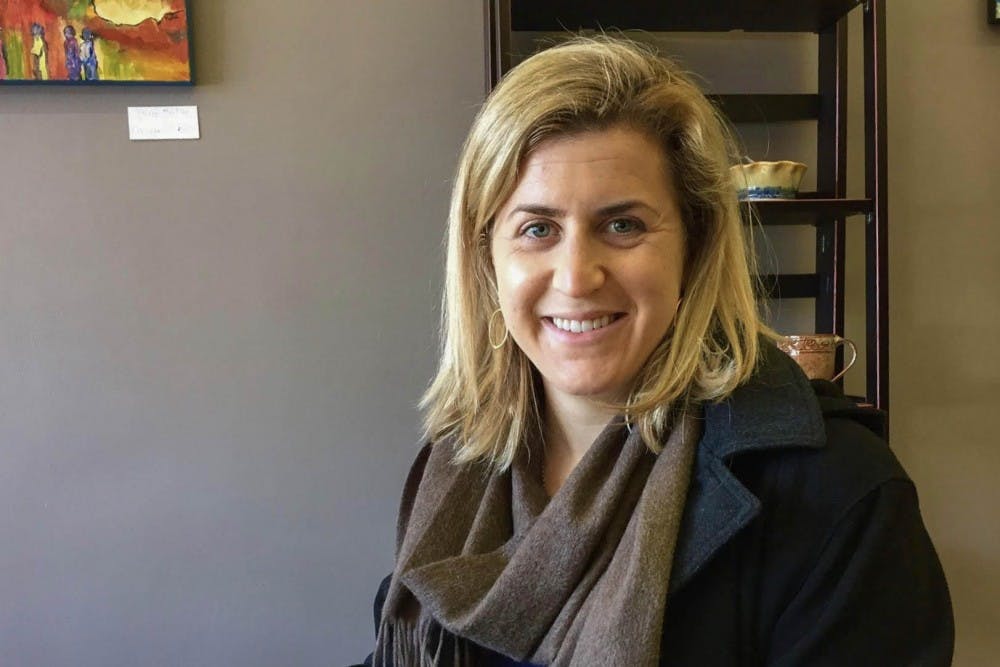Earlier this year, pop-icon Ariana Grande debuted her new music video for her hit song "break up with your girlfriend, i'm bored," intriguing fans and foes alike with the salacious title before the track even dropped.
But after the video's release, which was filled with stunning city views and choppy edits, some viewers were unsettled when Grande concluded the steamy video with a near kiss — not with Riverdale star Charles Melton, but with his on-screen girlfriend in the music video.
Some hailed Grande for her progressive views and encouraged the pop singer to further explore her sexuality, while others, specifically some members of the LGBTQ+ community, said that Grande was participating in what is known as queerbaiting.
Read more: What does the plus in 'LGBT+' mean?
Julia Himberg, an associate professor of film and media studies at ASU and author of The New Gay for Pay: The Sexual Politics of American Television Production, defines queerbaiting as the practice of a public figure hinting at the possibility of an LGBTQ+ relationship, often through subtext or innuendo, but never following through.
“It’s sometimes something that’s accidental, it can also be a little intentional,” Himberg said. “It has a very powerful implication, because queerbaiting robs people of representation and can actually be an expression of homophobia and exploitation.”
Himberg will teach a class this upcoming fall semester called LGBTV: Television and Sexuality where students can explore queerbating and related topics at length at ASU.
She was also recently featured in a BBC article about Grande for another potential queerbating instance in her new song with Victoria Monét, titled "MONOPOLY."
Himberg and other queerbating experts discussed the ambiguous lyric where Grande states that she likes "women and men" and if this particular lyric may or may not be recognized as queerbaiting.
In the BBC article, she said there's concern that some musical artists use this tactic as a form of seeming edgy or as a marketing tool to draw attention to themselves.
Robin Hosking, a junior majoring in conservation biology and president of Qmunity, a club that supports LGBTQ+ visibility, said queerbaiting allows artists to appeal to LGBTQ+ audiences without angering more conservative audiences by never fully confirming their LGBTQ+ identity.
“It makes them look progressive to that (liberal) audience,” Hosking said. "But it’s also like, people will be talking about it. It becomes a publicity stunt.”
A character’s coming out shouldn’t just be used for shock value, she said, as it cheapens their identity and makes their sexuality their entire character.
The goal in increasing television diversity should be to feature more people from minority communities and accurately portray them instead of limiting them to a trope, said Sabrina Villa, a junior majoring in history and vice president of Qmunity.
“Something (writers) could do a little better about is not having only white cis gay guys," Villa said. "I want more lesbians of color, I want more bisexuals who aren’t afraid to use the word 'bisexual.'"
She said it can be harmful to inappropriately use a character’s sexuality to reinforce stereotypes about other minority groups. This is often done to appeal to a male audience, but it’s at the cost of the minority groups they’re trying to represent, she said.
Advocates said that this and other types of queerbaiting exploit the LGBTQ+ community without fully acknowledging its members.
“I think it's a dangerous practice in the sense that we cannot ignore the presence of an entire community in our society,” said Diana Diaz Gomez, a graduate teaching associate in the School of International Letters and Cultures.
Gomez said queerbaiting takes us further from the point where queerness can be normalized in society, and that the practice exploits identity for the sake of making moeny.
“They use identity as a commodity,” she said. “So it's used only to profit from it.”
At a time when politics can feel regressive, Gomez said it’s more important than ever to be considerate of minority communities and the way they’re being represented.
Moving forward, Himberg said she hopes that Hollywood will embrace differences in a more holistic and celebratory way. She said representation alone isn’t enough if it’s harmful to the communities it’s seeking to represent, and as a result, audiences have begun to demand accountability from writers.
“I think healthy representation or accurate representation shows a multi-dimensional person, someone who’s flawed,” she said.
Reach the reporter at snalcan1@asu.edu or follow @SarahAlcantar on Twitter.
Like The State Press on Facebook and follow @statepress on Twitter.




